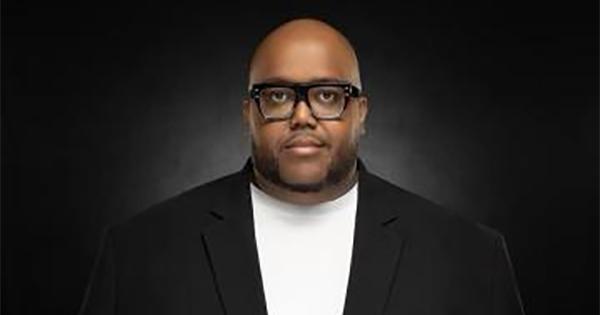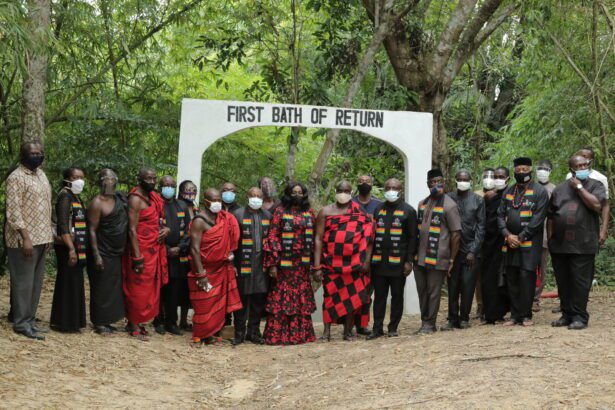Meeting your heroes doesn’t always lead to disappointment. When Freddy Wexler — a dedicated fan of Billy Joel — finally got the chance to meet him, it felt like Joel had stepped out of his own record collection.
“It’s not that surprising,” the 37-year-old songwriter and producer shared with GRAMMY.com. “That’s the best part. Based on his music, I expected him to be a humble, talented individual with a down-to-earth perspective, and that’s exactly who he is.”
This down-to-earth nature played a significant role in the creation of “Turn the Lights Back On” — the successful comeback single they collaborated on, and Wexler produced; Joel delivered a magnificent performance at the 2024 GRAMMYs alongside Laufey. Joel had not released a pop album since 1993’s River of Dreams; his return to the music scene required a powerful and authentic song that mirrored his life.
“I believe it offers a very raw, honest, real perspective that resonates with Billy,” Wexler elaborated. “It marks the first time we’ve heard him address mistakes and regrets in such a way.”
Joel’s return emphasizes his regret over spending most of the past three decades away from the limelight, reflecting on whether there is still time for forgiveness through the emotional, arpeggiated chorus of the song.
“Forgiveness” is an intriguing concept. Why would a five-time GRAMMY winner and 23-time nominee need to seek forgiveness? However, as the lyrics suggest, he is “tryin’ to find the magic/ That we lost somehow.” The song’s theme of rediscovering lost essence extends beyond Joel’s personal journey, resonating with a universal sense of longing and nostalgia.
Continue reading for an insightful interview with Wexler discussing the impact of “Turn the Lights Back On,” Joel’s hiatus from music, the potential for new music, and more.
This interview has been edited for clarity.
**You had a compelling interview with Rolling Stone prior to the 2024 GRAMMYs. Now that the event has passed, how did the on-stage performance and audience reception feel to you?**
Creating music with the hope of evoking emotions in people is my ultimate goal. This song has resonated profoundly. Beyond its commercial success on charts and radio, which has been fantastic, the feedback on platforms like Instagram and YouTube has been the most rewarding aspect.
Why do you think the song has struck a chord with listeners? Is it more than just the return of a music legend?
I believe the song remains true to itself. It presents a genuine, honest perspective that aligns with Billy’s character. It marks a significant moment where he openly acknowledges his mistakes and regrets. The hopeful tone as he contemplates, “Is it too late for forgiveness?” is incredibly moving.
Forgiveness? That’s intriguing. What aspect of Joel do listeners need to forgive?
In other interviews, Joel has mentioned, “At the end of their lives, some people claim to have no regrets.” He disagrees, stating that having regrets is a natural part of a full life. He acknowledges numerous things he wishes he had done differently, using this song as a platform to express those sentiments.
What’s compelling about the song is its ability to hold diverse meanings for different individuals and audiences. Some listeners interpret Joel as addressing past relationships or friends. Others see him questioning if he waited too long to return to music, or if he’s pondering his relationship with songwriting and inspiration. The song’s impact can vary widely, resonating uniquely with each listener, while Joel found his personal connection with it.
You have an in-depth knowledge of his discography. How do you see “Turn the Lights Back On” connecting with his previous works?
The song draws upon elements from various parts of his musical repertoire. For instance, “She’s Always a Woman” shares a similar piano arpeggio in the chorus. It feels like a natural progression, both as a new piece and as a potential follow-up to River of Dreams. It just feels like a seamless continuation.
**When you spoke with Rolling Stone, you eagerly anticipated hearing “Turn the Lights Back On” at Madison Square Garden. How did it sound in that setting?**
It was incredible. Billy is an exceptional live performer. Unlike many artists, every live rendition of his song feels enhanced and slightly different.
It’s fascinating to witness Billy and his band continuously refine and enhance the song’s dynamics for live performances. He mentioned that they might experiment with a different key during the upcoming show in Tampa, showing the spontaneity and creativity that great artists possess. It’s a stark contrast to rigid performances where each song remains unchanged.
With Billy, there’s a level of improvisation and exploration — trying different tempos, keys, and arrangements. I find that incredibly inspiring. It takes great skill to do this effortlessly.
What valuable lessons have you gleaned from him that have influenced your own music creation?
I’ve learned a great deal from him. As Olivia Rodrigo expressed during GRAMMY rehearsals, “He’s the standard to aspire to in songwriting.”
He has pushed me to raise my standards when it comes to crafting melodies and lyrics. However, the most important lesson I’ve learned is that even the most accomplished artists and songwriters can doubt their own greatness at times. We must be cautious not to let our inner critic overshadow our talents and capabilities.
Could you share how the concept for the music video unfolded?
I had a dream where a 25-year-old version of Billy was singing the first two lines of the song. It left a lasting impression.
Upon waking up, I envisioned the video with a single set, an empty venue, and four iterations of Billy Joel. The modern Joel was accompanied by three iconic versions from different eras, seamlessly passing the song along. This concept aimed to emphasize the song’s theme — questioning whether he had delayed in “turning the lights back on.”
To bring this vision to life and traverse through time, I collaborated with the talented co-director, Warren Fu, known for his work with artists like Dua Lipa and Daft Punk, along with the assistance of an artificial intelligence company named Deep Voodoo.
The opportunity to delve into the past and witness the progression of an iconic artist like Billy Joel was a driving force behind this creative endeavor.
The ability to spark conversations, create cultural moments, and evoke emotions is a remarkable aspect of AI. Despite the apprehension surrounding AI, there is a positive side to it, as demonstrated by leveraging it to bring to life a creative artistic vision that was previously unattainable.
I am pleased and grateful that Billy Joel participated in the project by filming a video. His willingness to take part in something different and moving speaks volumes.
What comes next in this journey?
This has been an incredibly fulfilling process. Billy Joel’s receptiveness to new ideas is refreshing, especially for an established artist like him. His openness to possibilities indicates that anything can happen. Personally, I hope there will be more musical creations in the future.
I’d appreciate your honest evaluation. While I understand that you are not Billy Joel, his last pop album was released 31 years ago. During that extensive period, what might have been his creative journey?
Although I am not Billy Joel, I believe several factors could have influenced his creative journey. At some point, he may have lost the enjoyment he once found in making music, which initially drew him to the art form. When the joy was no longer present, his motivation to continue may have waned.
Billy Joel is known for his perfectionism, reflected in the quality of his songwriting. Being the sole writer of his songs, he likely faced the challenge of continuously meeting his own high standards. This pressure could have led him to question how music luminaries like Beethoven or Leonard Bernstein would view his work.
One notable difference in this project was that “Turn the Lights Back On” was presented to Billy as a seed of an idea. This approach may have allowed him to approach the project with a sense of detachment, relieving him of the usual self-imposed pressure that comes with completing a long-standing idea.
The fact that he completed the project may also speak to this newfound freedom. There’s a unique element to that.
Billy Joel’s Greatest Hits: 15 Songs that Capture the Essence of the Piano Man’s Songwriting and Catchy Melodies




